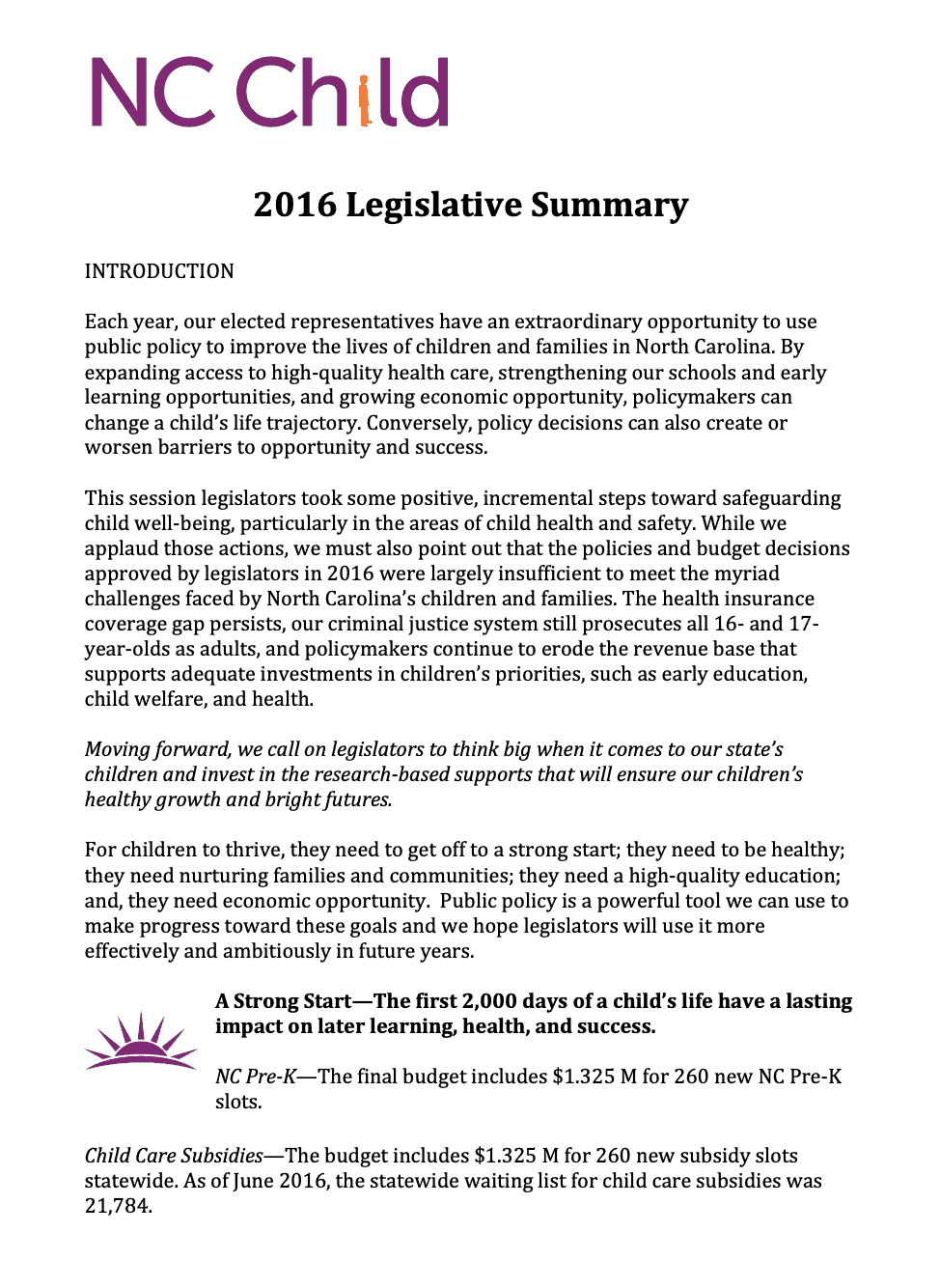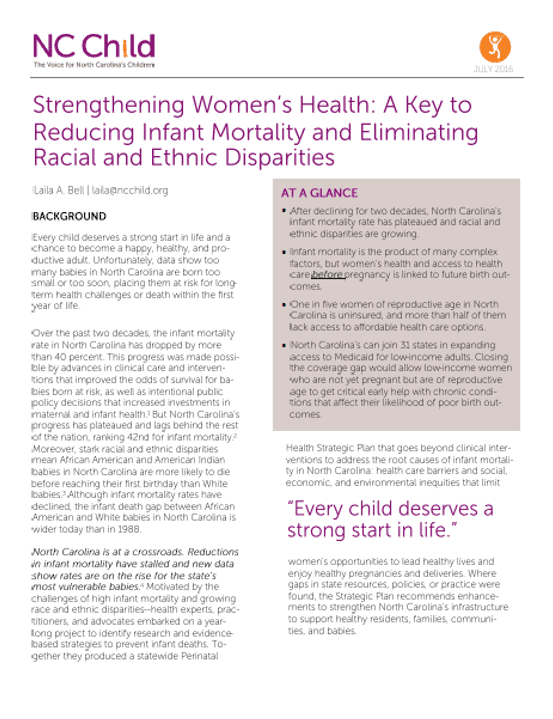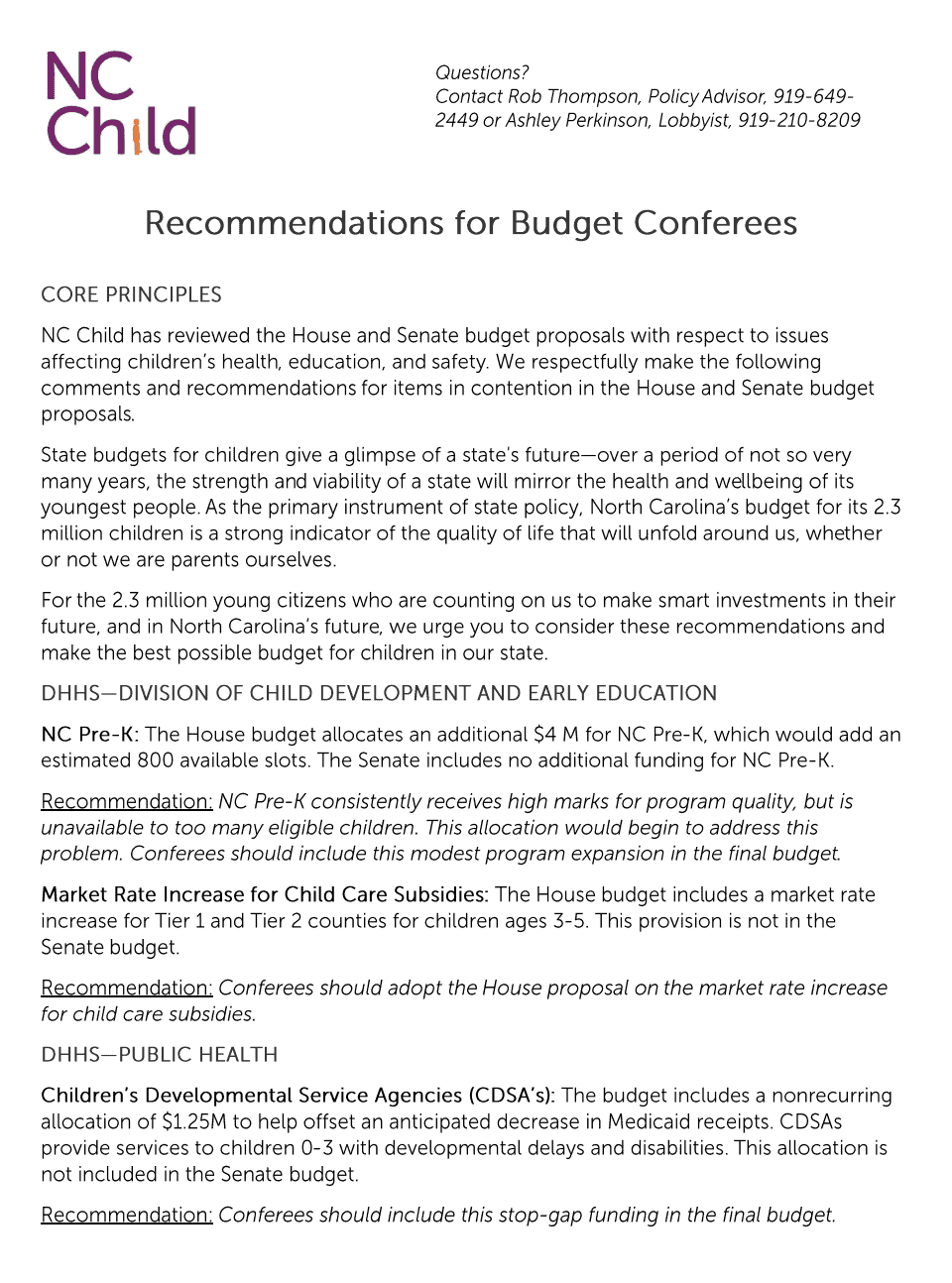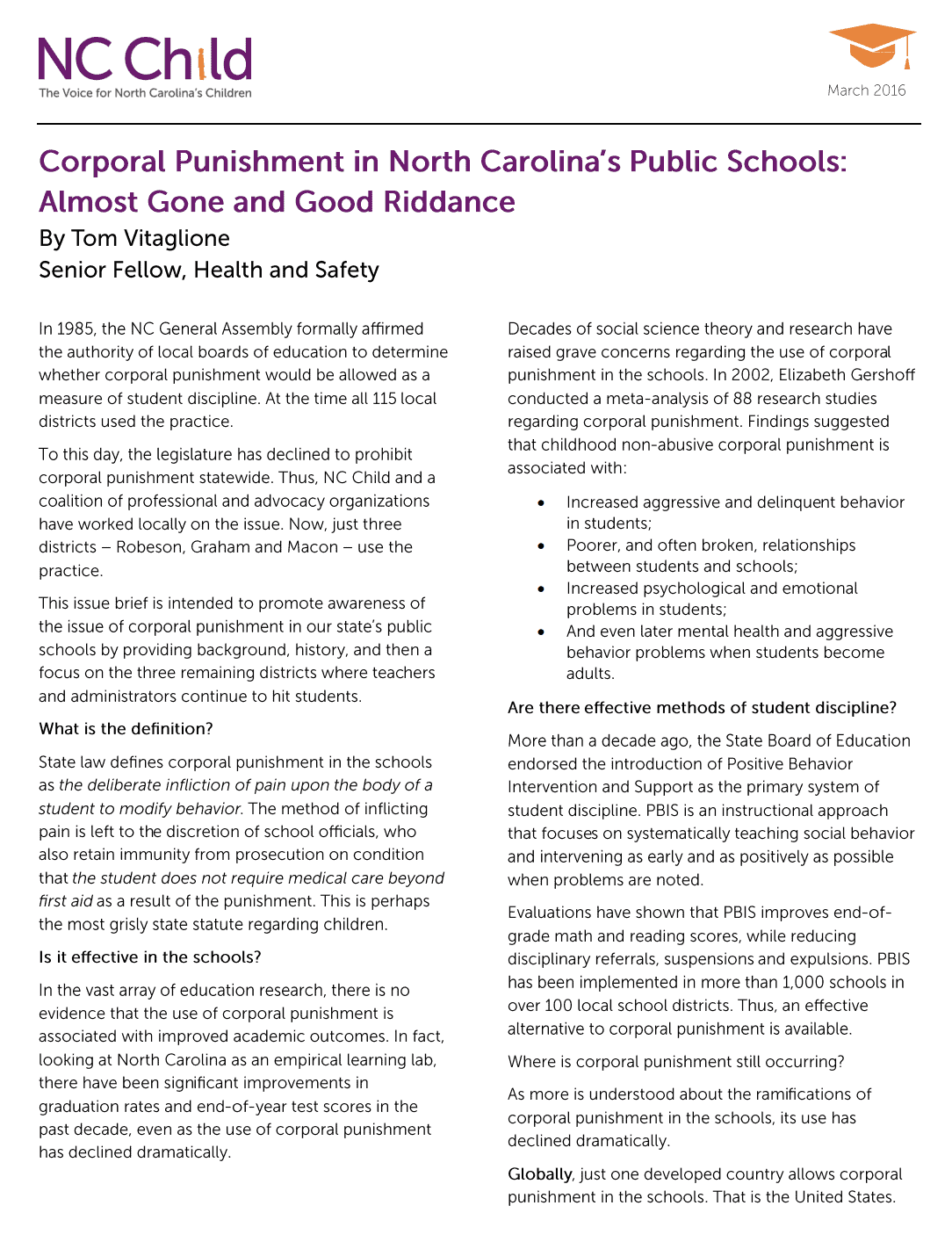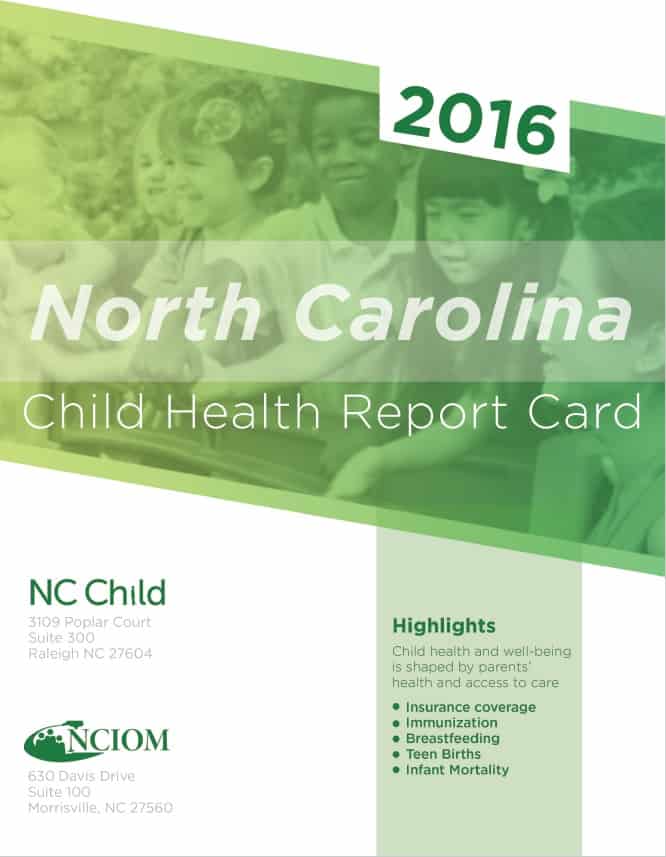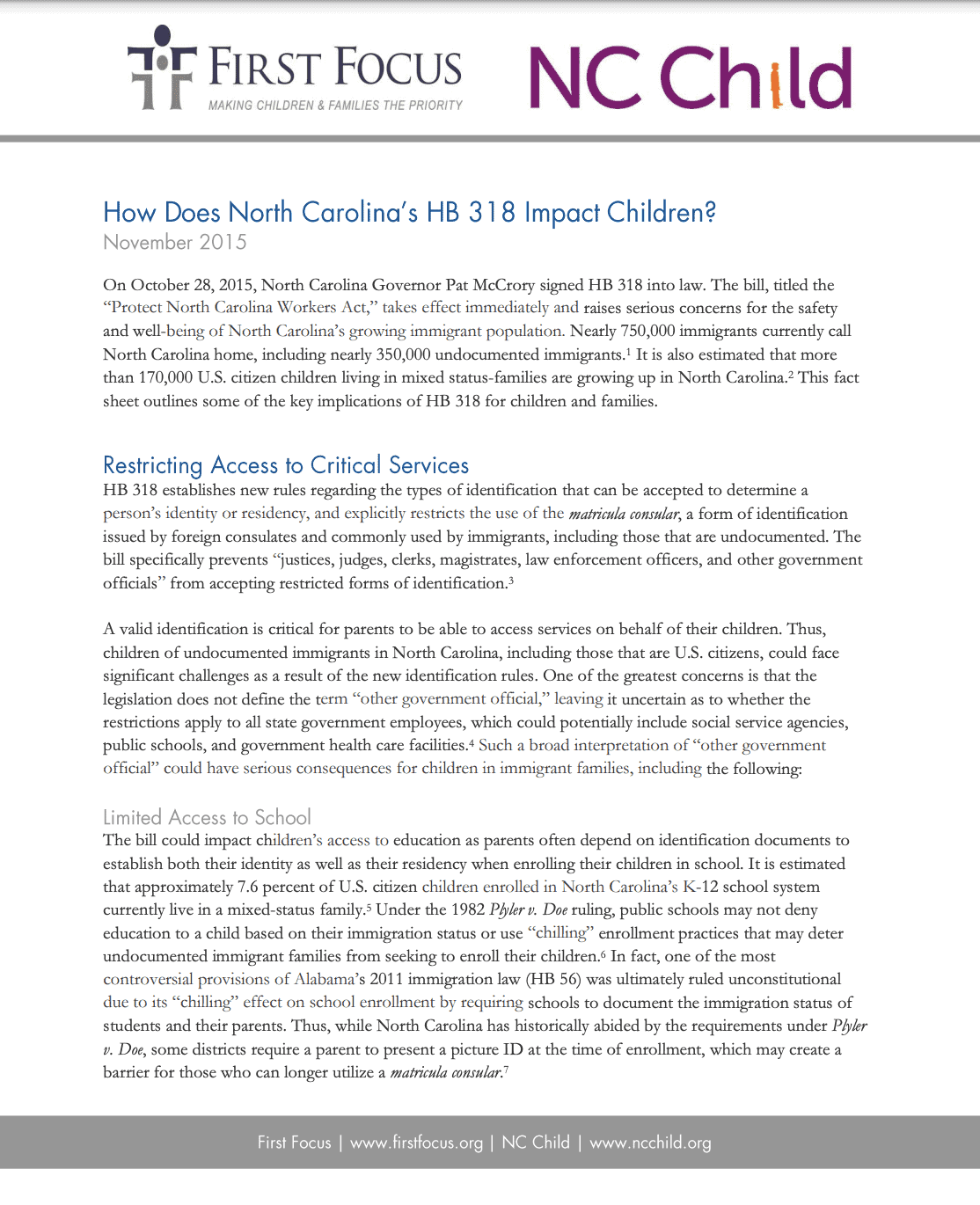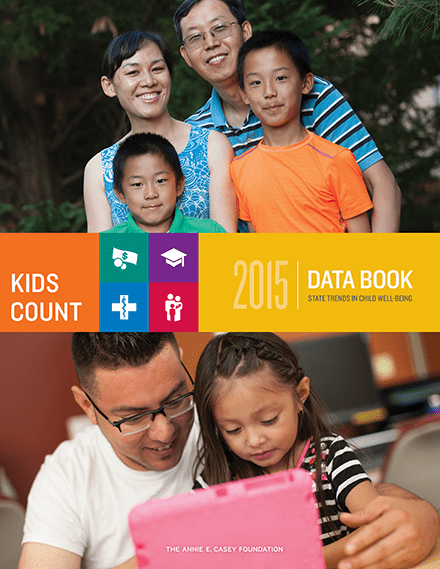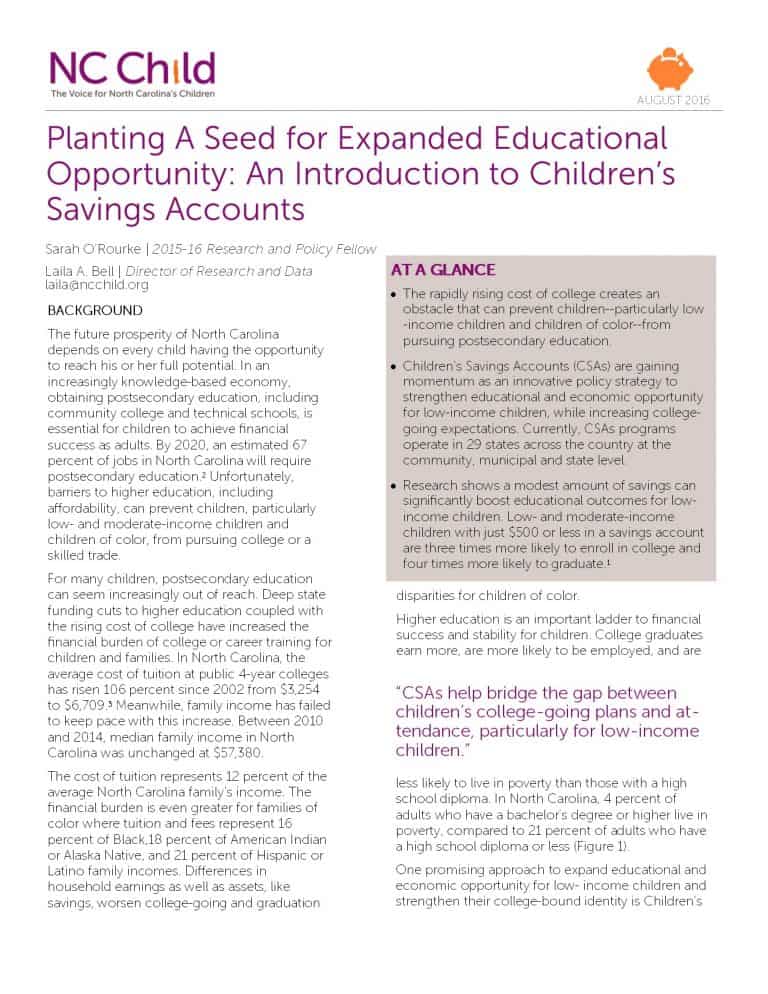
Planting A Seed for Expanded Educational Opportunity: An Introduction to Children’s Savings Accounts
August 2016
Higher education is an important ladder to financial success and stability for children. College graduates earn more, are more likely to be employed, and are less likely to live in poverty than those with a high school diploma. In North Carolina, 4 percent of adults who have a bachelor’s degree or higher live in poverty, compared to 21 percent of adults who have a high school diploma or less.
One promising approach to expand educational and economic opportunity for low- income children and strengthen their college-bound identity is Children’s Savings Accounts (CSAs)

